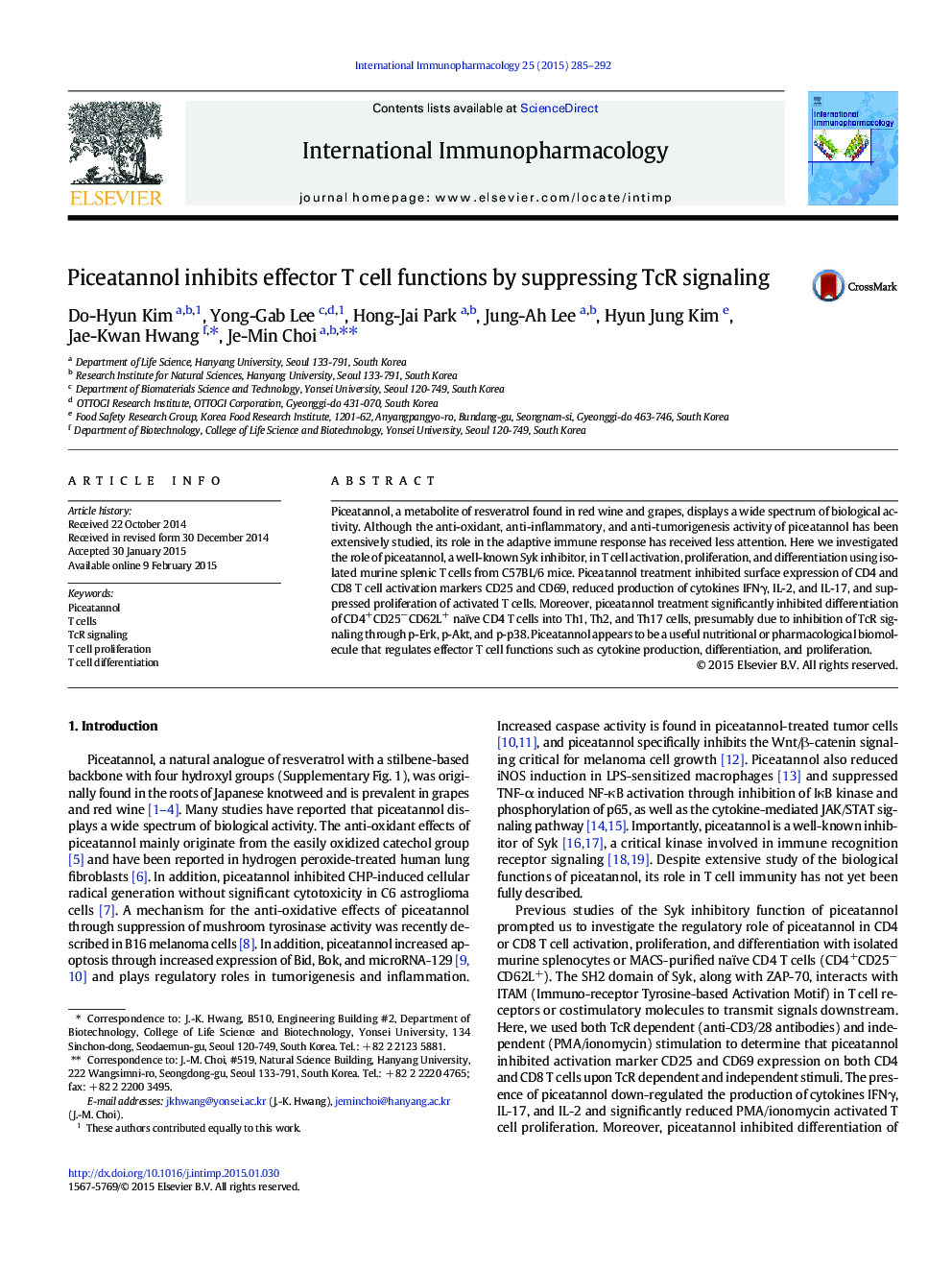| Article ID | Journal | Published Year | Pages | File Type |
|---|---|---|---|---|
| 2540577 | International Immunopharmacology | 2015 | 8 Pages |
•Piceatannol inhibits expression of activation markers CD25 and CD69 in CD4 and CD8 T cells.•Piceatannol suppresses cytokine production and proliferation in activated T cells.•Piceatannol negatively regulates effector T cell differentiation including Th1, Th2, and Th17.•Piceatannol reduces phosphorylation of Erk, p38, and Akt in activated CD4 T cells.
Piceatannol, a metabolite of resveratrol found in red wine and grapes, displays a wide spectrum of biological activity. Although the anti-oxidant, anti-inflammatory, and anti-tumorigenesis activity of piceatannol has been extensively studied, its role in the adaptive immune response has received less attention. Here we investigated the role of piceatannol, a well-known Syk inhibitor, in T cell activation, proliferation, and differentiation using isolated murine splenic T cells from C57BL/6 mice. Piceatannol treatment inhibited surface expression of CD4 and CD8 T cell activation markers CD25 and CD69, reduced production of cytokines IFNγ, IL-2, and IL-17, and suppressed proliferation of activated T cells. Moreover, piceatannol treatment significantly inhibited differentiation of CD4+CD25−CD62L+ naïve CD4 T cells into Th1, Th2, and Th17 cells, presumably due to inhibition of TcR signaling through p-Erk, p-Akt, and p-p38. Piceatannol appears to be a useful nutritional or pharmacological biomolecule that regulates effector T cell functions such as cytokine production, differentiation, and proliferation.
Graphical abstractFigure optionsDownload full-size imageDownload as PowerPoint slide
